
Originally released in 1964 on The Sonet label as Volumes 1 & 2, this CD remasters this exceptional 1963 concert of original material and pieces by Ornette & Monk, complete in sequence as performed at Jazzhaus Montmarte in Copenhagen with Archie Shepp on tenor saxophone, Don Cherry on cornet, John Tchicai on alto saxophone, Don Moore on double bass and J.C. Moses on drums.
In Stock
Quantity in Basket: None
Log In to use our Wish List
Shipping Weight: 3.00 units
EU & UK Customers:
Discogs.com can handle your VAT payments
So please order through Discogs
Sample The Album:
Archie Shepp-tenor saxophone
Don Cherry-cornet
John Tchicai-alto saxophone
Don Moore-double bass
J.C. Moses-drums
Click an artist name above to see in-stock items for that artist.
UPC: 752156112426
Label: ezz-thetics by Hat Hut Records Ltd
Catalog ID: ezz-thetics 1124
Squidco Product Code: 31262
Format: CD
Condition: New
Released: 2021
Country: Switzerland
Packaging: Cardboard Gatefold
Recorded live at Jazzhus Montmartre, in Copenhagen, Denmark, on November 15th, 1963.
"JJazzhus Montmartre - aka Café Montmartre - is one of the great jazz clubs, on a par with The Village Vanguard, Ronnie Scott's, and very few others. Its legacy extends well beyond longevity and booking blue-chip artists traversing Europe; for years, it provided a home away from home for Copenhagen-residing American expats like Stan Getz, Dexter Gordon and Kenny Drew, and a proving ground for now internationally renowned Danish musicians like Niels-Henning Ørsted Pedersen. During the 1970s, the club was integral to a mainstream jazz connoisseurship exported by Steeplechase Records, which dovetailed with an audiophilia cultivated in part by Bang & Olufsen.
By then, the club - which opened in 1959 with a two-week stint by New Orleans clarinetist George Lewis - was the site of enduring "live" LPs first issued on Danish labels by artists far afield from Gordon and other exponents of sophisticated swing. The first was the November 1962 performance by Cecil Taylor, Jimmy Lyons and Sunny Murray, material first issued the following year on Debut as Live at the Café Montmartre, and subsequently expanded and repackaged over the decades (the occasion also yielded the only extant recording of Taylor and Albert Ayler together, one that remained underground for over 40 years).
The other is New York Contemporary Five's November 1963 gig, initially issued on two discs in '64 and '65 by Sonet. The first volume was reissued in 1967 by Delmark, who gave Archie Shepp top billing, presumably to coattail the publicity generated by his Impulse recordings. Storyville followed suit in 1972 when it reissued both volumes. Recorded late in the group's only tour - one booked by John Tchicai, who tapped contacts he made throughout northern Europe before relocating to New York in late 1962 - the Montmartre recordings reveal a road-tested refinement of the collective chemistry captured on Consequences, recorded in New York just a few months before. (Both the Fontana LP and the three tracks recorded for the Savoy album shared with Bill Dixon's 7-tette were reissued on ezz-thetics 1105 in 2020 as Consequences Revisited.)
Despite persisting labeling of its music as avant-garde, NYCF played unthreatening contemporary jazz almost as often as it explored more daring materials. Two of Thelonious Monk's loveliest melodies - "Monk's Mood" and "Crepuscule with Nellie" - were embedded into their sets, as well as three of Ornette Coleman's more accessible, swinging vehicles, "O.C.," "When Will the Blues Leave," and "Emotions." These pieces provided a perspective of contemporary jazz that placed the adventurous, even bristling originals penned by Don Cherry, Shepp, and Tchicai, on a relatively undaunting horizon. Tchicai's "Mik" uses a release valve-like gliding phrase with a string of tightly coiled phrases in a manner similar to Charles Mingus, albeit without the protean, dramatic flair. Dedicated to the recently murdered Medgar Evers, Shepp's "The Funeral" uses orchestrated elements and calibrated, testifying solos to movingly approximate how sorrow ballasts rage.
In this regard, it is useful to consider the music of NYCF in a context similar to that in which Don Heckman placed Sam Rivers in the liner notes of the multi-instrumentalist's 1966 Blue Note album, Contours; that, "if it cannot quite accurately be described as avant-garde, [they are] reaching toward goals not too far removed from those sought by the revolutionaries." There are several features to NYCF's music that distinguishes it from that of radicals like Taylor and Murray, beginning with the more conventional propulsion of J.C. Moses and Don Moore. The quintet's temperament was flinty, not lacerating, tart but not bitter, characteristics largely attributable to the streamlining arrangements of the composers and Bill Dixon (who scored "Crepuscule with Nellie" and Tchicai's "Wo Wo" in addition to contributing his own "Trio").
It is the latter trait that led Charles Fox to conclude his notes for the original Fontana issue of Consequences with the assessment that the "most striking thing about this music is its tightness, its conciseness. There are no longueurs, none of those agonising periods where the musicians mark time, waiting for inspiration to strike. And this music possesses the basic virtues of all good jazz - of all good art, for that matter. It has interior tension; it is related to a framework outside the musicians' own whims and fancies; and it achieves emotional communication. But the emotion is shaped, it is canalised. Poems, somebody once said, are made with words not feelings, and the same - allowing for the difference between literature and music - is only too true for jazz."
Albert Ayler proclaimed the primacy of sound in jazz the next year; but in 1963, it was still about the notes - what words are to poems. They abound in New York Contemporary Five's Jazzhus Montmartre recordings, and they continue to resonate after almost 60 years."-Bill Shoemaker, July 2021
Artist Biographies
• Show Bio for Archie Shepp "Archie Shepp (born May 24, 1937) is an American jazz saxophonist. Shepp was born in Fort Lauderdale, Florida, but raised in Philadelphia, Pennsylvania. He studied piano, clarinet, and alto saxophone before focusing on tenor saxophone. He occasionally plays soprano saxophone and piano. He studied drama at Goddard College from 1955 to 1959. He played in a Latin jazz band for a short time before joining the band of avant-garde pianist Cecil Taylor. Shepp's first recording under his own name, Archie Shepp - Bill Dixon Quartet, was released on Savoy Records in 1962 and featured a composition by Ornette Coleman. Along with John Tchicai and Don Cherry, he was a member of the New York Contemporary Five. John Coltrane's admiration led to recordings for Impulse! Records, the first of which was Four for Trane in 1964, an album of mainly Coltrane compositions on which he was joined by trombonist Roswell Rudd, bassist Reggie Workman and alto player John Tchicai. Shepp participated in the sessions for Coltrane's A Love Supreme in late 1964, but none of the takes he participated in was included on the final LP release (they were made available for the first time on a 2002 reissue). However, Shepp, along with Tchicai and others from the Four for Trane sessions, then recorded Ascension with Coltrane in 1965, and his place alongside Coltrane at the forefront of the avant-garde jazz scene was epitomized when the pair split a record (the first side a Coltrane set, the second a Shepp set) entitled New Thing at Newport released in late 1965.File:Archie Shepp interview 1978.webmPlay media(video) Interview from 1978, Archie Shepp discusses jazz trends, poverty, politics, civil rights, culture and society. In 1965, Shepp released Fire Music, which included the first signs of his developing political consciousness and his increasingly Afrocentric orientation. The album took its title from a ceremonial African music tradition and included a reading of an elegy for Malcolm X. Shepp's 1967 The Magic of Ju-Ju also took its name from African musical traditions, and the music was strongly rooted in African music, featuring an African percussion ensemble. At this time, many African-American jazzmen were increasingly influenced by various continental African cultural and musical traditions; along with Pharoah Sanders, Shepp was at the forefront of this movement. The Magic of Ju-Ju defined Shepp's sound for the next few years: freeform avant-garde saxophone lines coupled with rhythms and cultural concepts from Africa. Shepp was invited to perform in Algiers for the 1969 Pan-African Cultural Festival of the Organization for African Unity, along with Dave Burrell, Sunny Murray, and Clifford Thornton. This ensemble then recorded several sessions in Paris at the BYG Actuel studios. Shepp continued to experiment into the new decade, at various times including harmonica players and spoken word poets in his ensembles. With 1972's Attica Blues and The Cry of My People, he spoke out for civil rights; the former album was a response to the Attica Prison riots. Shepp also writes for theater; his works include The Communist (1965) and Lady Day: A Musical Tragedy (1972). Both were produced by Robert Kalfin at the Chelsea Theater Center. In 1971, Shepp was recruited to the University of Massachusetts Amherst by Randolph Bromery, beginning a 30-year career as a professor of music. Shepp's first two courses were entitled "Revolutionary Concepts in African-American Music" and "Black Musician in the Theater". Shepp was also a professor of African-American Studies at SUNY in Buffalo, New York. In the late 1970s and beyond, Shepp's career went between various old territories and various new ones. He continued to explore African music, while also recording blues, ballads, spirituals (on the 1977 album Goin' Home with Horace Parlan) and tributes to more traditional jazz figures such as Charlie Parker and Sidney Bechet, while at other times dabbling in R&B, and recording with various European artists including Jasper van't Hof, Tchangodei and Dresch Mihály. Shepp is featured in the 1981 documentary film Imagine the Sound, in which he discusses and performs his music and poetry. Shepp also appears in Mystery, Mr. Ra, a 1984 French documentary about Sun Ra. The film also includes footage of Shepp playing with Sun Ra's Arkestra. Since the early 1990s, he has often played with the French trumpeter Eric Le Lann. In 1993, he worked with Michel Herr to create the original score for the film Just Friends. In 2002, Shepp appeared on the Red Hot Organization's tribute album to Fela Kuti, Red Hot and Riot. Shepp appeared on a track entitled "No Agreement" alongside Res, Tony Allen, Ray Lema, Baaba Maal, and Positive Black Soul. In 2004 Archie Shepp founded his own record label, Archieball, together with Monette Berthomier. The label is located in Paris, France, and includes collaborations with Jacques Coursil, Monica Passos, Bernard Lubat, and Frank Cassenti." ^ Hide Bio for Archie Shepp • Show Bio for Don Cherry "Imagination and a passion for exploration made Don Cherry one of the most influential jazz musicians of the late 20th century. A founding member of Ornette Coleman's groundbreaking quartet of the late '50s, Cherry continued to expand his musical vocabulary until his death in 1995. In addition to performing and recording with his own bands, Cherry worked with such top-ranked jazz musicians as Steve Lacy, Sonny Rollins, Archie Shepp, Albert Ayler, John Coltrane, and Gato Barbieri. Cherry's most prolific period came in the late '70s and early '80s when he joined Nana Vasconcelos and Collin Walcott in the worldbeat group Codona, and with former bandmates Charlie Haden and Ed Blackwell, and saxophonist Dewey Redman in the Coleman-inspired group Old and New Dreams. Cherry later worked with Vasconcelos and saxophonist Carlos Ward in the short-lived group Nu. The Avant-Garde Born in Oklahoma City in 1936, he first attained prominence with Coleman, with whom he began playing around 1957. At that time Cherry's instrument of choice was a pocket trumpet (or cornet) -- a miniature version of the full-sized model. The smaller instrument -- in Cherry's hands, at least -- got a smaller, slightly more nasal sound than is typical of the larger horn. Though he would play a regular cornet off and on throughout his career, Cherry remained most closely identified with the pocket instrument. Cherry stayed with Coleman through the early '60s, playing on the first seven (and most influential) of the saxophonist's albums. In 1960, he recorded The Avant-Garde with John Coltrane. After leaving Coleman's band, Cherry played with Steve Lacy, Sonny Rollins, Archie Shepp, and Albert Ayler. In 1963-1964, Cherry co-led the New York Contemporary Five with Shepp and John Tchicai. With Gato Barbieri, Cherry led a band in Europe from 1964-1966, recording two of his most highly regarded albums, Complete Communion and Symphony for Improvisers. Cherry began the '70s by teaching at Dartmouth College in 1970, and recorded with the Jazz Composer's Orchestra in 1973. He lived in Sweden for four years, and used the country as a base for his travels around Europe and the Middle East. Cherry became increasingly interested in other, mostly non-Western styles of music. In the late '70s and early '80s, he performed and recorded with Codona, a cooperative group with percussionist Nana Vasconcelos and multi-instrumentalist Collin Walcott. Codona's sound was a pastiche of African, Asian, and other indigenous musics. Art Deco Concurrently, Cherry joined with ex-Coleman associates Charlie Haden, Ed Blackwell, and Dewey Redman to form Old and New Dreams, a band dedicated to playing the compositions of their former employer. After the dissolution of Codona, Cherry formed Nu with Vasconcelos and saxophonist Carlos Ward. In 1988, he made Art Deco, a more traditional album of acoustic jazz, with Haden, Billy Higgins, and saxophonist James Clay. Multikulti Until his death in 1995, Cherry continued to combine disparate musical genres; his interest in world music never abated. Cherry learned to play and compose for wood flutes, tambura, gamelan, and various other non-Western instruments. Elements of these musics inevitably found their way into his later compositions and performances, as on 1990's Multi Kulti, a characteristic celebration of musical diversity. As a live performer, Cherry was notoriously uneven. It was not unheard of for him to arrive very late for gigs, and his technique -- never great to begin with -- showed on occasion a considerable, perhaps inexcusable, decline. In his last years, especially, Cherry seemed less self-possessed as a musician. Yet his musical legacy is one of such influence that his personal failings fade in relative significance." ^ Hide Bio for Don Cherry • Show Bio for John Tchicai "John Martin Tchicai (April 28, 1936 - October 8, 2012) was a Danish free jazz saxophonist and composer. After moving to New York City in 1963, Tchicai joined Archie Shepp's New York Contemporary Five and the New York Art Quartet. He played on John Coltrane's Ascension, and Albert Ayler's New York Eye and Ear Control, both influential free jazz recordings. Tchicai was born in Copenhagen, Denmark, to a Danish mother and a Congolese father. The family moved to Aarhus, where he studied violin in his youth, and in his mid-teens began playing clarinet and alto saxophone, focusing on the latter. By the late 1950s he was travelling around northern Europe, playing with many musicians. Following his work in New York, Tchicai returned to Denmark in 1966, and shortly thereafter focused most of his time on music education. He formed the small orchestra Cadentia Nova Danica with Danish and other European musicians; this group collaborated with Musica Elettronica Viva and performed in multi-media events. Tchicai was a founding member of Amsterdam's Instant Composers Pool in 1968, and in 1969 took part in the recording of John Lennon and Yoko Ono's Unfinished Music No.2: Life with the Lions. On August 30, 1975, Tchicai's appearance at the Willisau Jazz Festival was recorded and released later that year as Willi The Pig. On this record, he plays with Swiss pianist Irène Schweizer. Tchicai returned to a regular gigging and recording schedule in the late 1970s. In the early 1980s he switched to the tenor saxophone as his primary instrument. In 1990 he was awarded a lifetime grant from the Danish Ministry of Culture. Tchicai and his wife relocated to Davis, California, in 1991, where he led several ensembles. He was awarded a National Endowment for the Arts fellowship in 1997. He was a member of Henry Kaiser and Wadada Leo Smith's "Yo Miles" band, a loose aggregation of musicians exploring Miles Davis's electric period. Since 2001 he had been living near Perpignan in southern France. On June 11, 2012, he suffered a brain hemorrhage in an airport in Barcelona, Spain. He was recovering and had canceled all appearances when he died in a Perpignan hospital on October 8, 2012, aged 76." ^ Hide Bio for John Tchicai • Show Bio for Don Moore "Don Moore (born 1937, in Philadelphia, Pennsylvania) is an American jazz double-bassist. Moore initially played piano but switched to bass in 1959. He played and recorded with Archie Shepp and Bill Dixon in Europe in 1962. In 1963 he was a member of the New York Contemporary Five, and while the ensemble was in Copenhagen, Moore recorded with Roland Kirk. In the fall of that same year, he played briefly with Thelonious Monk. Later in the 1960s Moore worked with Sonny Rollins, Jackie McLean, Frank Foster, and Lee Morgan. He recorded with Elvin Jones in 1966 and Clifford Thornton in 1967, but receded from view toward the end of the 1960s. Don Moore is currently active in the New York area. He is father to singer, Indra Rios-Moore, and actor, Ryan Moore." ^ Hide Bio for Don Moore • Show Bio for J.C. Moses "J.C. Moses (October 18, 1936 - 1977) was an American jazz drummer. He was born in Pittsburgh, Pa and first began playing around Pittsburgh in the 1950s with Stanley Turrentine and brother Tommy Turrentine. In the 1960s he worked with Clifford Jordan, Kenny Dorham and Eric Dolphy. In 1963, he performed and recorded with the New York Contemporary Five, a group that included Archie Shepp, John Tchicai and Don Cherry among its members. In 1964 he played with Tchicai and Roswell Rudd in the New York Art Quartet, and following this with Bud Powell, Charles Lloyd, Roland Kirk, Andrew Hill and Sam Rivers. He moved to Copenhagen around 1969, where he was house drummer at the Montmartre Club, playing with Ben Webster and Dexter Gordon among others. He played less in the 1970s due to failing health and returned to Pittsburgh, where he played with Nathan Davis and Eric Kloss. He never recorded as a leader." ^ Hide Bio for J.C. Moses
7/9/2025
Have a better biography or biography source? Please Contact Us so that we can update this biography.
7/9/2025
Have a better biography or biography source? Please Contact Us so that we can update this biography.
7/9/2025
Have a better biography or biography source? Please Contact Us so that we can update this biography.
7/9/2025
Have a better biography or biography source? Please Contact Us so that we can update this biography.
7/9/2025
Have a better biography or biography source? Please Contact Us so that we can update this biography.
Track Listing:
1. Cisum 9:56
2. Trio 15:06
3. Consequences 8:32
4. The Funeral 5:05
5. Wo Wo 5:48
6. O.C. 5:42
7. When Will The Blues Leave 8:36
8. Monk's Mood 2:22
9. Emotions 8:40
10. Crepuscule With Nellie 2:15
11. Mik 7:30
Hat Art
Improvised Music
Jazz
Free Improvisation
NY Downtown & Metropolitan Jazz/Improv
Quintet Recordings
Jazz Reissues
Staff Picks & Recommended Items
Top Sellers for 2022 by Customer Sales
Search for other titles on the label:
ezz-thetics by Hat Hut Records Ltd.


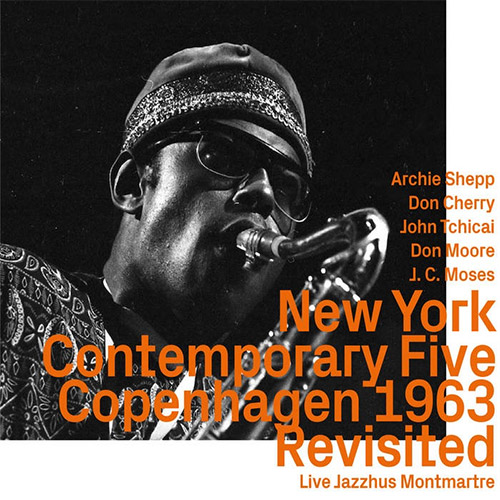


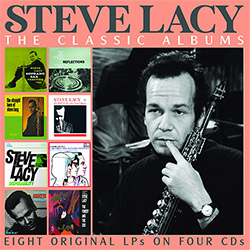




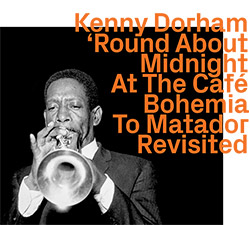
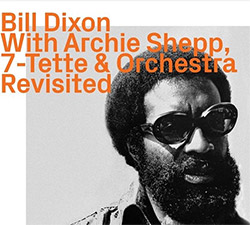

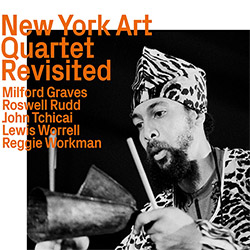
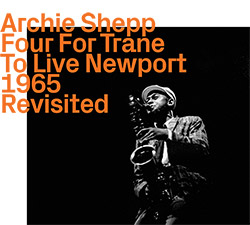
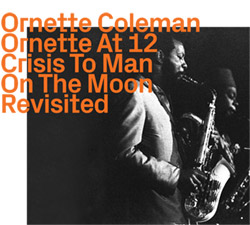
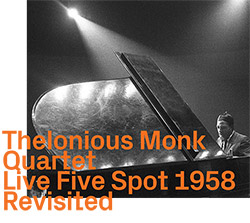

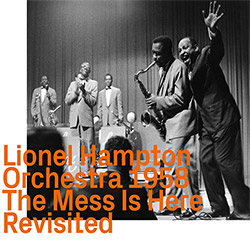
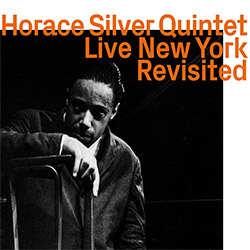
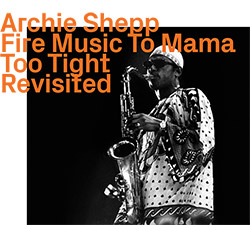
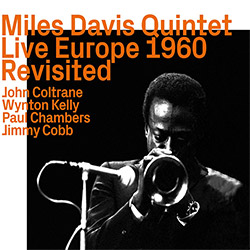

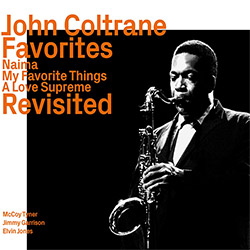

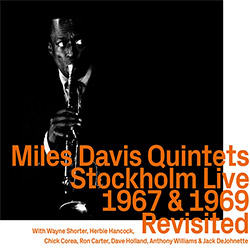







![BlueRing Improvisers: Materia [2 CDs]](https://www.teuthida.com/productImages/misc4/36513.jpg)








![Wheelhouse (Rempis / Adasiewicz / McBride): House And Home [VINYL]](https://www.teuthida.com/productImages/misc4/36462.jpg)
![+DOG+: The Light Of Our Lives [2 CDs]](https://www.teuthida.com/productImages/misc4/36009.jpg)


![Parker, Evan / Jean-Marc Foussat: Insolence [VINYL]](https://www.teuthida.com/productImages/misc4/36398.jpg)










![Deupree, Jerome / Sylvie Courvoisier / Lester St. Louis / Joe Morris: Canyon [2 CDs]](https://www.teuthida.com/productImages/misc4/36404.jpg)



![Eventless Plot | Haarvol: The Subliminal Paths [CASSETTE + DOWNLOAD]](https://www.teuthida.com/productImages/misc4/36232.jpg)










![Eventless Plot | Francesco Covarino: Methexis [CASSETTE + DOWNLOAD]](https://www.teuthida.com/productImages/misc4/36231.jpg)



![Das B (Mazen Kerbaj / Mike Majkowski / Magda Mayas / Tony Buck): Love [VINYL]](https://www.teuthida.com/productImages/misc4/36329.jpg)


![Eternities: Rides Again [CASSETTE]](https://www.teuthida.com/productImages/misc4/36247.jpg)
![Lopez, Francisco: Untitled (2021-2022) [2 CDs]](https://www.teuthida.com/productImages/misc4/36438.jpg)






![Money : Money 2 [2 CDs]](https://www.teuthida.com/productImages/misc4/35894.jpg)




![Klinga, Erik: Elusive Shimmer [VINYL]](https://www.teuthida.com/productImages/misc4/36258.jpg)
![CHANGES TO blind (Phil Zampino): Volume 9 - I Wave on a Fine Vile Mist [CD + DOWNLOAD]](https://www.teuthida.com/productImages/misc4/36061.jpg)

![Wallmart / Rubbish: Asset Protection [split CD]](https://www.teuthida.com/productImages/misc4/35900.jpg)


![+Dog+: The Family Music Book Vol. 5 [2 CDs]](https://www.teuthida.com/productImages/misc4/35897.jpg)
![Kuvveti, Deli : Kuslar Soyledi [CASSETTE w/ DOWNLOAD]](https://www.teuthida.com/productImages/misc4/36107.jpg)

![Brown, Dan / Dan Reynolds: Live At The Grange Hall [unauthorized][CASSETTE]](https://www.teuthida.com/productImages/misc4/36245.jpg)








![Palestine, Charlemagne / Seppe Gebruers: Beyondddddd The Notessssss [VINYL]](https://www.teuthida.com/productImages/misc4/36206.jpg)
![Palestine, Charlemagne / Seppe Gebruers: Beyondddddd The Notessssss [NEON GREEN VINYL]](https://www.teuthida.com/productImages/misc4/36207.jpg)

![Laubrock, Ingrid: Purposing The Air [2 CDs]](https://www.teuthida.com/productImages/misc4/35639.jpg)

![Yoko, Ono / The Great Learning Orchestra: Selected Recordings From Grapefruit [2 CDs]](https://www.teuthida.com/productImages/misc4/35841.jpg)









![Zorn, John / JACK Quartet: The Complete String Quartets [2 CDs]](https://www.teuthida.com/productImages/misc4/35609.jpg)

![Lonsdale, Eden: Dawnings [2 CDs]](https://www.teuthida.com/productImages/misc4/35480.jpg)



![Sorry For Laughing (G. Whitlow / M. Bates / Dave-Id / E. Ka-Spel): Rain Flowers [2 CDS]](https://www.teuthida.com/productImages/misc4/35985.jpg)

![Rolando, Tommaso / Andy Moor : Biscotti [CASSETTE w/ DOWNLOADS]](https://www.teuthida.com/productImages/misc4/36106.jpg)


![Electric Bird Noise / Derek Roddy: 8-10-22 [CD EP]](https://www.teuthida.com/productImages/misc4/35970.jpg)








![Elephant9 : Mythical River [VINYL]](https://www.teuthida.com/productImages/misc4/34624.jpg)



![Elephant9 with Terje Rypdal: Catching Fire [VINYL 2 LPs]](https://www.teuthida.com/productImages/misc4/35355.jpg)
![Deerlady (Obomsawin, Mali / Magdalena Abrego): Greatest Hits [VINYL]](https://www.teuthida.com/productImages/misc4/34876.jpg)







![Surplus 1980: Illusion of Consistency [CD]](https://www.teuthida.com/productImages/misc4/35069.jpg)
![Staiano, Moe: Away Towards the Light [VINYL + DOWNLOAD]](https://www.teuthida.com/productImages/misc4/35037.jpg)
![Coley, Byron: Dating Tips for Touring Bands [VINYL]](https://www.teuthida.com/productImages/misc4/17906.jpg)

![Lost Kisses: My Life is Sad & Funny [DVD]](https://www.teuthida.com/productImages/misc4/lostKissesDVD.jpg)